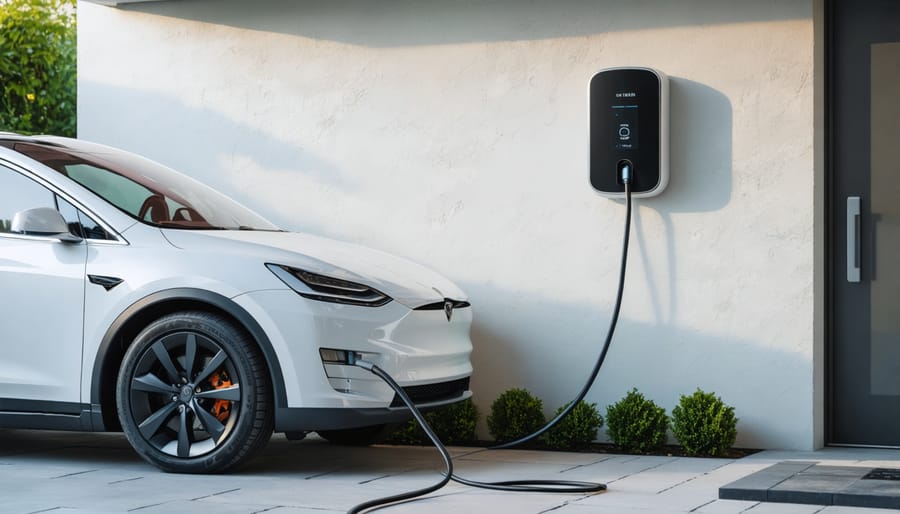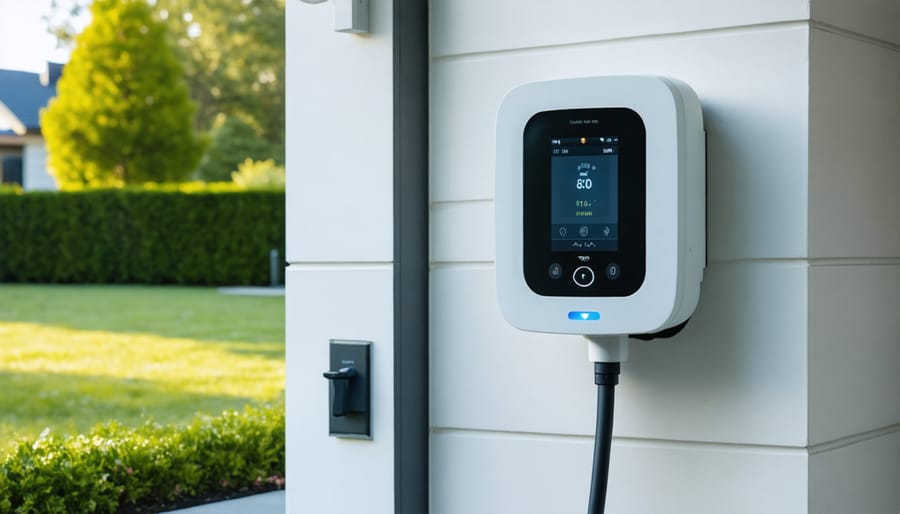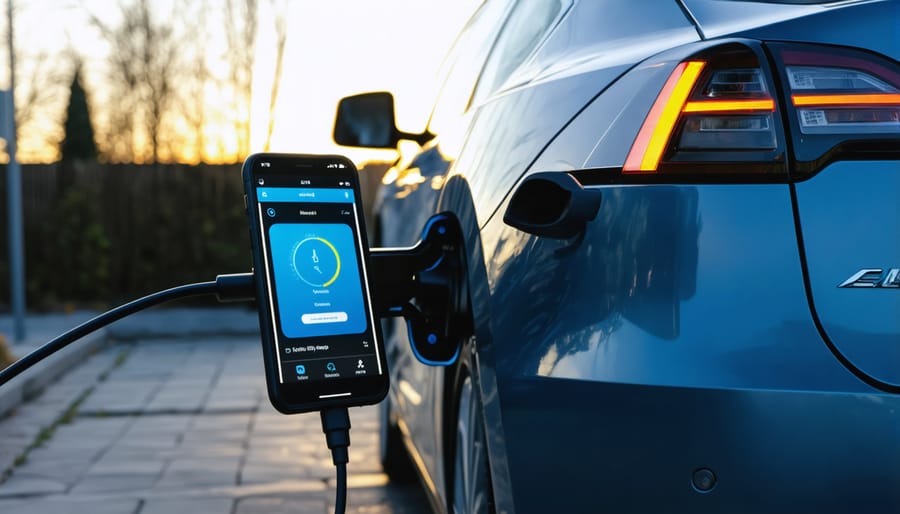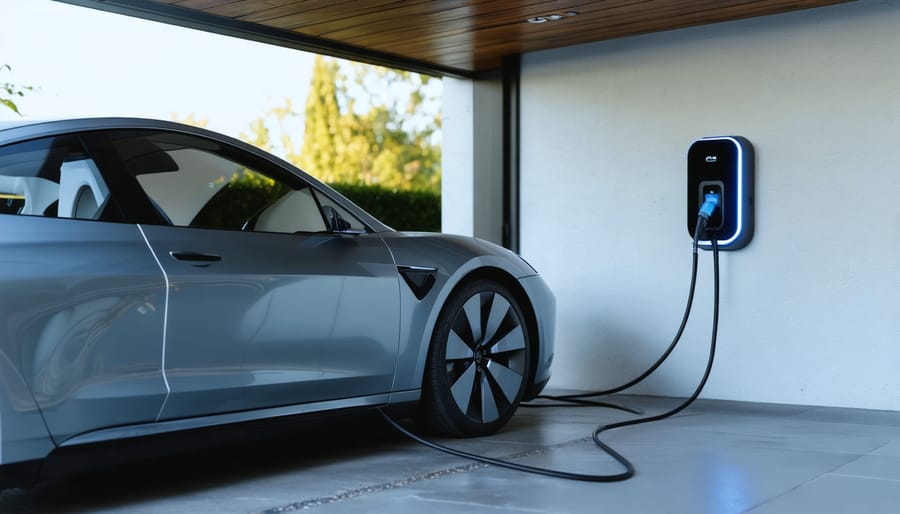Calculate your electric vehicle charging costs with precision and start saving money today. As BC electricity rates continue to fluctuate, understanding your EV charging expenses has become essential for smart energy management. Our comprehensive EV charging calculator factors in your local power rates, charging frequency, and vehicle specifications to deliver accurate cost estimates tailored to British Columbia’s unique energy landscape.
Whether you’re charging at home, work, or public stations, this practical tool helps you predict monthly expenses, compare charging options, and optimize your charging schedule for maximum savings. By inputting your specific vehicle model, driving habits, and local electricity rates, you’ll receive a detailed breakdown of costs per kilometer and potential annual savings compared to traditional fuel vehicles.
Make informed decisions about your EV charging strategy and join thousands of BC residents who are maximizing their electric vehicle investment while minimizing their environmental impact. Let’s demystify EV charging costs and put you in control of your energy expenses.

Understanding BC’s Electric Vehicle Charging Rates
Peak vs. Off-Peak Charging
One of the most effective ways to reduce your EV charging costs is to take advantage of BC Hydro’s time-of-use rates. During off-peak hours, typically from 11 PM to 7 AM, electricity rates can be significantly lower than during peak hours. This means you could save up to 50% on your charging costs simply by plugging in your vehicle before bedtime.
For example, if you charge your EV during peak hours (4 PM to 9 PM), you might pay around $0.14 per kWh. However, by shifting your charging schedule to off-peak hours, you could pay as little as $0.07 per kWh. For a typical EV with a 60 kWh battery, this difference could result in savings of over $4 per full charge.
Many modern EVs come with built-in charging timers that let you schedule charging during these cost-effective hours. You can also use smart charging stations that automatically start charging when rates are lowest. Remember to check BC Hydro’s current time-of-use rates and peak hours, as they may vary by season and region within British Columbia.
Home Charging vs. Public Charging Costs
When comparing charging costs in Vancouver and across BC, home charging typically offers the most economical option. BC Hydro’s residential rates average around $0.14 per kWh during step 1, making it significantly cheaper than most public charging alternatives.
Public charging costs vary considerably depending on the provider and charging speed. Level 2 public chargers usually cost between $1-2 per hour, while DC fast charging can range from $0.27 to $0.57 per kWh. Popular networks like BC Hydro’s public stations charge $0.12 per minute for 50kW charging and $0.27 per minute for 100kW charging.
To put this in perspective, charging a typical EV with a 64kWh battery from 20% to 80% would cost:
– Home charging: approximately $7.20
– Level 2 public charging: $8-16
– DC fast charging: $15-30
For regular commuters, home charging can save $500-1,000 annually compared to relying solely on public charging. However, public charging networks remain essential for longer trips and emergency top-ups. Many BC workplaces and shopping centers now offer free or subsidized charging, which can supplement home charging and further reduce costs.
Consider your driving patterns and charging needs when deciding between home and public charging options. Most EV owners find that a combination of both provides the most practical and cost-effective solution.

How to Use the EV Charging Cost Calculator
Required Information
To accurately calculate your EV charging costs in BC, you’ll need the following information ready:
Your vehicle’s battery capacity in kilowatt-hours (kWh)
Current BC Hydro electricity rates (Step 1 and Step 2 rates)
Your typical monthly electricity consumption
Average distance driven per month
Vehicle’s energy efficiency (kWh per 100 km)
Preferred charging locations (home, public, or workplace)
Type of charger used (Level 1, 2, or DC Fast Charging)
Time of day you typically charge (for time-of-use considerations)
For home charging calculations, having your recent BC Hydro bills handy will help provide the most accurate estimate. If you use public charging stations, note their specific rates and any membership discounts you receive.
Understanding Your Results
When your calculation is complete, you’ll see your estimated charging costs broken down into daily, monthly, and annual figures. These results factor in BC Hydro’s two-tier residential rates and your specific charging habits. For example, if you’re charging primarily during off-peak hours (9 PM to 7 AM), your costs will be noticeably lower than peak-time charging.
Pay attention to the cost per kilometer metric, which helps you compare EV charging expenses with traditional fuel costs. A typical BC driver might see charging costs between $30-$50 monthly, though this varies based on vehicle efficiency and driving patterns.
If your costs seem higher than expected, consider adjusting your charging schedule to take advantage of lower nighttime rates. Also, review your charging location mix – home charging is generally more economical than public stations, though public charging might be necessary for longer trips.
Use these results to plan your charging strategy and budget accordingly. Remember that seasonal changes in BC can affect battery efficiency and charging needs, so it’s worth recalculating during different times of the year.
Tips for Reducing Your EV Charging Costs
Maximize your EV charging savings with these proven strategies. Start by scheduling your charging during BC Hydro’s off-peak hours, typically between 9 PM and 7 AM, when rates are lowest. Consider combining your EV charging strategy with a comprehensive home energy efficiency assessment to identify additional savings opportunities.
Install a smart charging station that can automatically start charging during off-peak hours. Many BC drivers save up to 60% on charging costs by using this feature. Take advantage of free charging stations at local shopping centers, workplaces, and public facilities – there are over 2,500 public charging stations across BC.
Join local EV owner groups on social media to share tips and locations of cost-effective charging stations. Consider signing up for BC Hydro’s EV rate plans, specifically designed for electric vehicle owners. Regular maintenance of your vehicle’s battery and charging system ensures optimal efficiency and prevents energy waste.
For longer trips, plan your route around DC fast-charging stations to minimize charging time and costs. Remember to precondition your battery while still connected to home power to reduce energy consumption during your journey.

Using an EV charging cost calculator empowers you to make informed decisions about your electric vehicle expenses while contributing to BC’s sustainable future. By understanding and optimizing your charging costs, you can maximize savings while minimizing your environmental impact. Remember that smart charging habits not only benefit your wallet but also help build a cleaner, more sustainable British Columbia for generations to come. Start calculating your costs today and join our community of conscious EV drivers.

